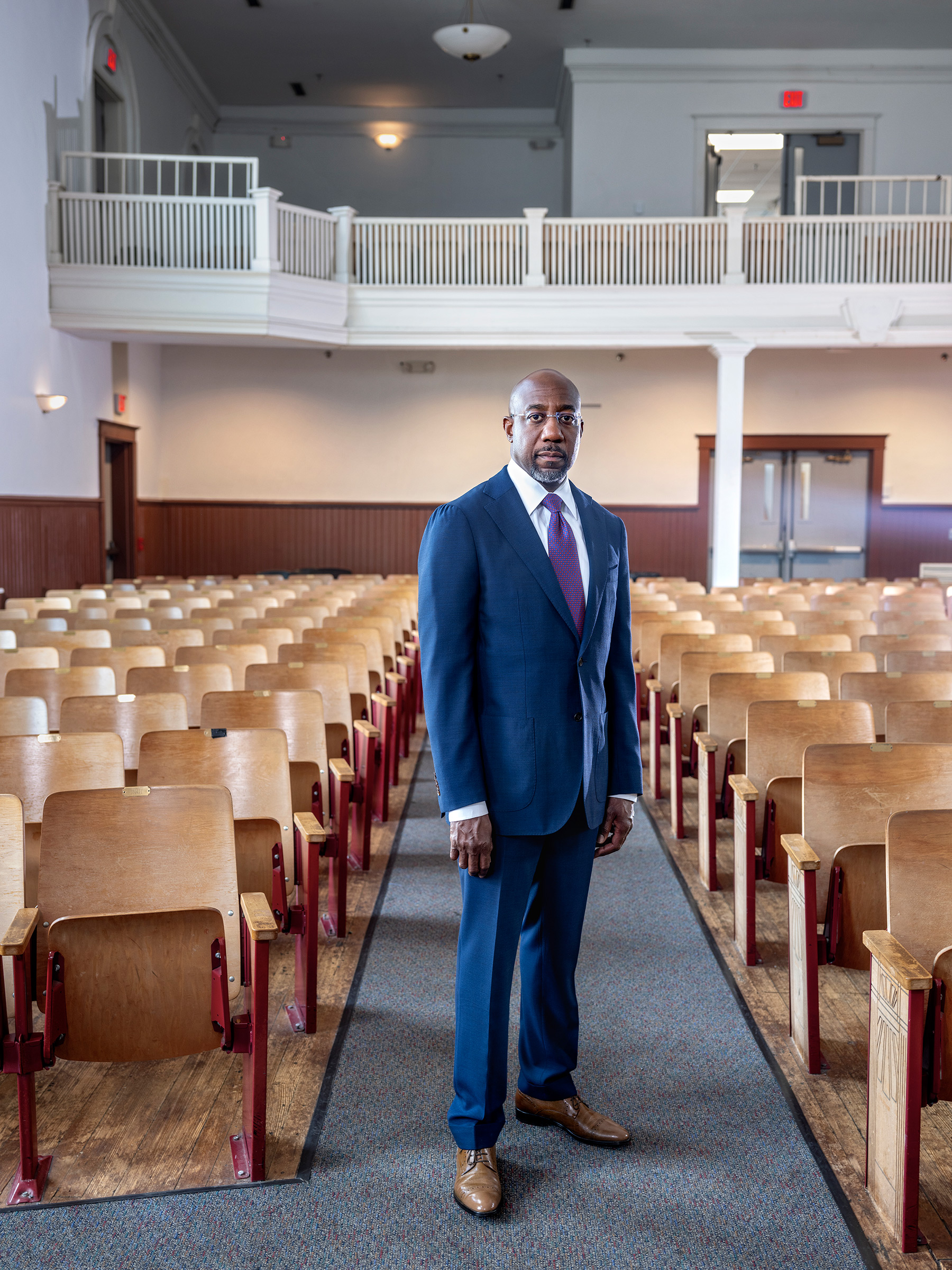Raphael Warnock understands himself as a man born of a mighty lineage that he regards a “moral tradition.” He begins with his father, a self-taught metal worker, collecting cast-off vehicles, disassembling them, and selling them for parts. Recalling his father’s ingenuity, the Senator’s voice soars with an emotion that is easily recognized as awe, tinged with great respect. “He would create these mechanisms. He would literally draw the thing on a piece of paper and think it through. He was putting these things together to load up these old junk cars … To take care of his family. A way out of no way.”
Warnock has self-consciously followed in the steps of the African American men who changed America. He often quips that although he was born the year after Martin Luther King Jr.’s death, it was King himself who recruited Warnock to Morehouse College, a historically Black men’s college from which he would graduate in 1991. Shortly after Warnock’s 2021 Senate victory, he mentioned this on a congratulatory Zoom call with about 100 of his former classmates. The declaration was received with some good-natured ribbing. Had they not all been drawn to Morehouse by the college’s most illustrious alumnus? But for Warnock, the affinity was different. His older sister Joyce Coleman Hall recalls that her younger brother began reciting King’s sermons when he was only 5 or 6 years old: “He quoted them with such sincerity, with weight in his voice. Waving his little hands.”
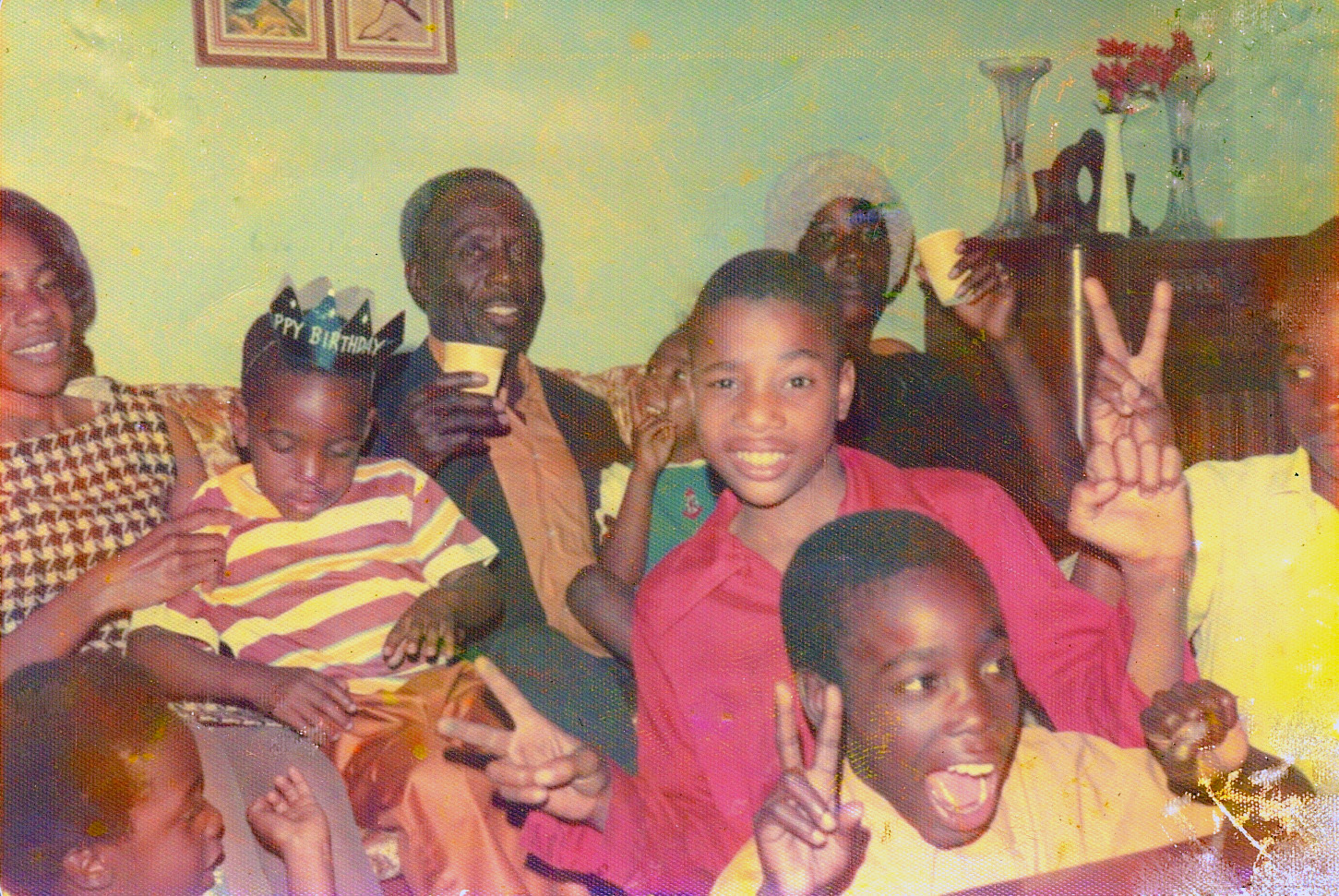
Warnock’s life story is somehow sepia and Technicolor at once. He is the 11th child born to working-class parents in Savannah, Ga. The number 11 itself gives off a mystical vibe, and the sheer number of kids seems to beckon to an earlier time, an earlier South. But this story is, at the same time, a modern one. They are a blended family. His father was a Pentecostal minister, and so was his mother. When his parents married, his mother brought six children to the union, and his father four. Together they welcomed Raphael and his youngest sister. “We’re like the Brady Bunch,” says Warnock, “but we needed twice as many squares.”
As a boy, he shared a room with his older brother Keith, a veteran of the Gulf War and also a police officer. In 1997 Keith, along with 11 other officers, was charged in connection with a conspiracy to sell drugs. The consequences were swift and harsh.
“This was a nonviolent drug offense,” said Warnock. “My brother was a first-time offender. Keith’s crime was public corruption. It was a betrayal of the public trust. I get that. No one was hurt. No drugs were moving, anywhere. No drugs were on the streets. And for that, my brother was sentenced to his physical life. Without the possibility of parole. You can’t sentence a human being to more years than life. He was 33 years old.” Keith was released in 2020 because of the COVID-19 pandemic.
There is a saying in the Black community that as a man, you will be judged by 12 or carried by six. Warnock grappled with both these realities. After preaching the funeral for Rayshard Brooks, an unarmed Black man in Atlanta killed by the police, Warnock drove to the prison to collect his big brother. “It’s a context for understanding who I am,” Warnock explains. “And how different my own life could have been. My brother was on the bottom bunk, and I was on the top bunk. I’m acutely aware of how close my life as a Black man could have been to a different path. All it takes it being pulled over, and you could end up dead.”
Or you could end up a United States Senator.
The Warnock family has long believed its youngest son, doted on by older siblings and parents alike, was foreordained for greatness. Hall recalls a day when she was 12 years old and baby Raphael was only 7 months old. “Two of the women at our church came by and told my mother to bring the baby … Those women laid hands on my brother, and they said that he would be a voice to the nation and that God’s hands were on his life and favor would be upon him.”
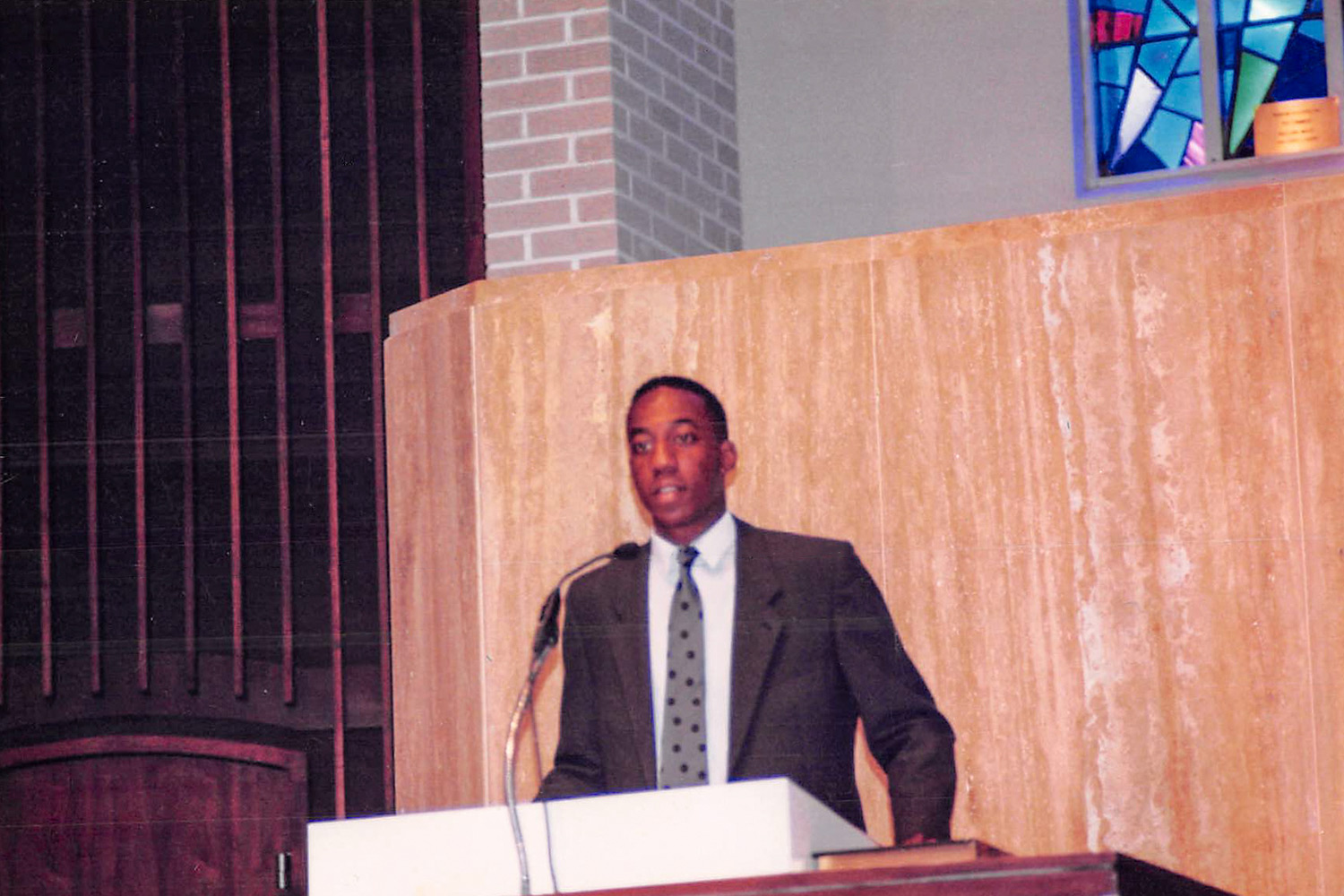
We are gathered on the veranda of the Morehouse president’s grand home for a reception following graduation in May, where Warnock has just delivered the commencement address and received an honorary degree. The well-dressed crowd has accessorized to indicate their various affiliations—alumni pins, silk scarves in sorority colors, panama hats signaling graduation years. Kids, clad in their Sunday best, drink fruit punch carelessly, as the grown folks hum along with R&B oldies, queueing for the carving stations and -paella bar. Hall smiles, noting, without being explicit, that this setting and the occasion are evidence of a prophecy fulfilled.
Warnock doesn’t speak of himself in such lofty terms. Instead, he demonstrates humility, joking with the graduating class that he arrived at college penniless as his father quoted Acts 3:6: “‘Silver and gold, I have none.’” Warnock remembers lamenting to the dean of the chapel that “I don’t have but one suit.” He recalls the other students driving “fine cars.” He delivers this memory with the wry amusement of remembering his childish preoccupations.
Sitting in the audience, I am reminded of the first time I heard Warnock speak. The year was 1987, and we were college freshmen. I was a student at Spelman College, the historically Black women’s college that is so close to Morehouse that the schools share a parking lot. Warnock was chosen to represent his class, and delivered an address in what I always think of as the Morehouse manner—-passionate, syncopated, and polysyllabic. Would I say that we knew even then that he was destined for prominence? Yes, but with an asterisk. At Morehouse and Spelman, we believed all our classmates would change the world.
There is nothing not to like about his story. His new memoir, A Way Out of No Way, is a triumphant narrative of family, faith, planning, and perseverance. Warnock, who describes himself as a “Head Start alumnus,” benefited from Upward Bound, a government program designed to support low-income children and prepare them for academic success in higher education. In the Senator today, you have to squint to see the little boy who learned his ABCs in the “early bird” pre-K program. After witnessing his Easter sermon, I teased him about his immaculate pulpit style—a gorgeous gray suit, lime green tie, and pocket square. His voice fits the sunny sanctuary, managing to be light yet sonorous. When it’s time for the altar call welcoming those in the pews to formally join the church, he smiles, extending a hand.
Warnock followed Dr. King to Morehouse, which turned out to be just Warnock’s first step on a journey that situated him on the path of the great American theologians of the 20th century. Although he was accepted to Harvard Divinity School, he instead earned his Ph.D. at New York City’s Union Theological Seminary, a hub of progressive theology. While there, he secured a post as assistant pastor at Abyssinian Baptist Church, a storied church in Harlem helmed by Adam Clayton Powell Sr. before Powell passed the pulpit to Adam Clayton Powell Jr.—the first Black person to represent New York in Congress.
When Warnock received word in 2005 that Ebenezer Baptist Church in Atlanta was looking for a new pastor, he was intrigued. This was no ordinary church. Martin Luther King Jr. had been its pastor, as had his father before him. Ebenezer became shorthand for the moral and religious authority shoring up MLK Jr. and by extension the civil rights movement. When Warnock, then only 35 years old, decided to throw his hat in the ring, his selection seemed all but inevitable, as did all his subsequent triumphs.
Perhaps this is the benefit of hindsight.
In 2020 Warnock embarked upon the fight of his life as he stepped into the political arena. As the media would not allow anyone to forget, he was a Black man running for the Senate in the state of Georgia, on a ballot headed by Donald Trump and Joe Biden. Part of this was the Northern penchant for scapegoating the South as the bastion of American racism. Only 11 Black Senators have ever been elected, so such a victory for almost any seat would have been significant, but with the racial baggage of the South, this was even more thrilling. His opponent Kelly Loeffler was blond, rich, but wildly unpopular. While she was the co-owner of the WNBA team the Atlanta Dream, she denounced the league’s support for Black Lives Matter. In response, players for the Dream and other squads made headlines wearing T-shirts that read vote warnock.
In one of many unique details of the 2020 election, there were two Senate seats up for grabs. As Warnock worked to win Loeffler’s seat, now 35-year-old Jon Ossoff challenged legacy Georgia Republican David Perdue. Ossoff pulled no punches. In an October debate just days before the general election, he proclaimed, “It’s not just that you’re a crook, Senator.” After that blistering debate defeat, Perdue withdrew from all other matches, so Ossoff took to the stage and interrogated Perdue’s empty podium.
But Warnock couldn’t fight Loeffler’s aggression with the same. She may have been unpopular, but he was still a Black man, and she a white woman. Instead he countered her harsh attacks with campaign ads that managed to be whimsical and cutting at the same time. The most popular featured a -wholesome-looking Warnock walking a beagle, appearing puzzled by his opponent’s ire. At the end, he tossed a plastic bag of dog poop into a trash can. Metaphor, anyone?
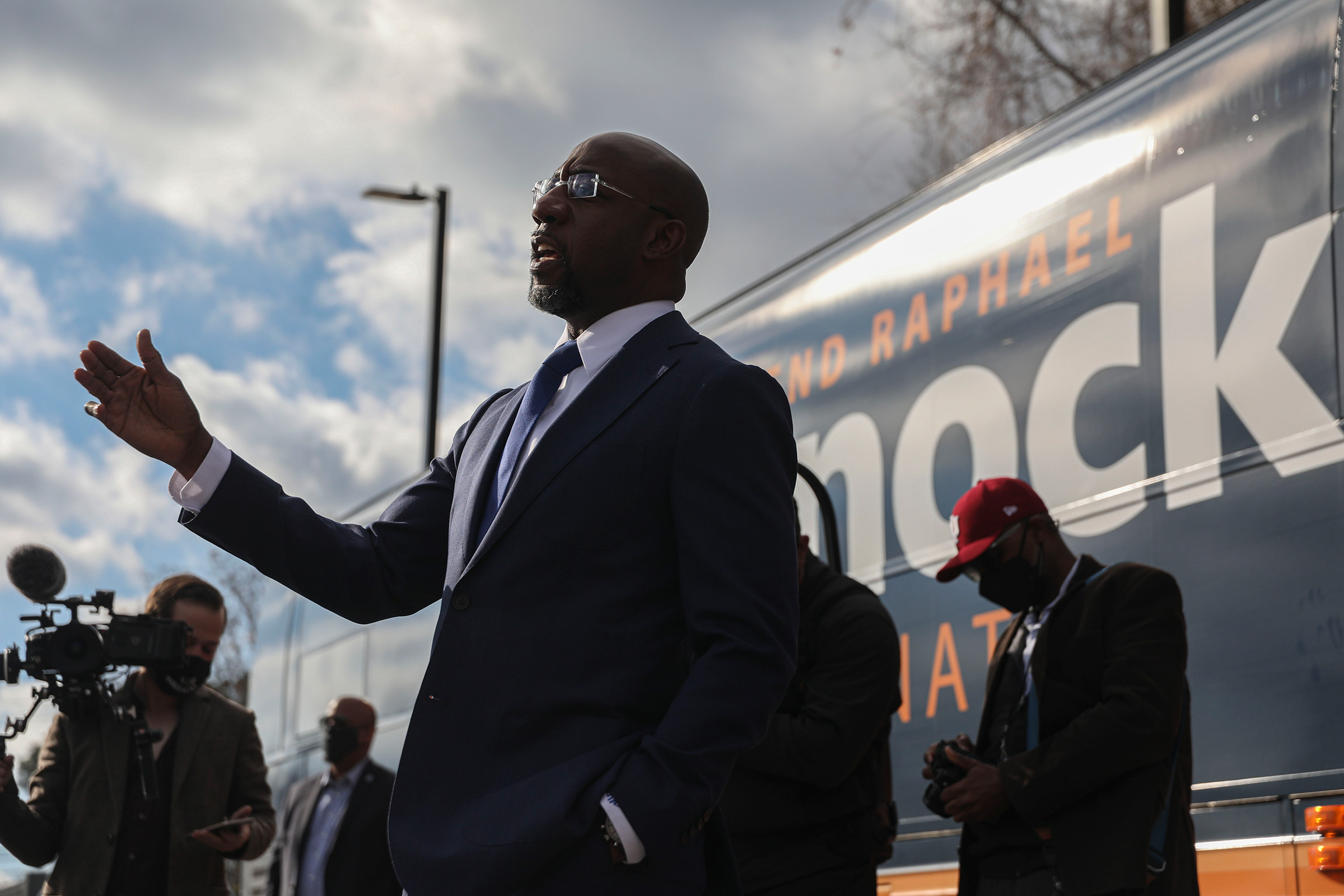
On Jan. 5, 2021, the race was called. Georgia voters sent the two Republican Senators home and replaced them with Warnock and Ossoff—of whom “Black” and “Jewish” (respectively) were spoken so frequently, they almost seemed to be extensions of their names. In my Atlanta neighborhood, cars honked their horns in triumph. “Celebration” by Kool and the Gang blasted as if it were cookout season. Georgia, home to Stone Mountain Confederate Memorial, the largest relief sculpture in the world, was now the un-official capital of the new South. The jubilee was short-lived, of course. The next day a right-wing mob stormed the U.S. Capitol: the building was defaced, lawmakers were terrorized, police officers were beaten, several people were seriously injured and killed, and a noose was erected.
Our literal dancing in the street suddenly felt naive.
Though more than a year has passed, we are still mired in those terrible days when we watched the Inauguration of Joe Biden with bated breath, praying for a peaceful afternoon. The stars of that day were young poet Amanda Gorman, and perhaps Lady Gaga’s brooch; but also on that afternoon, Warnock and Ossoff took the oath of office, making official that Georgia, formerly blood-red, was now purple.
Warnock jokes that he is the most junior member of the Senate, behind even the younger Ossoff, “Because my last name begins with W.” Still, Warnock has made some moves in his short tenure, reaching across the aisle to introduce the Cruz–Warnock amendment for interstate-highway funding as part of the infrastructure package And yet, admittedly, as power lies with the coalition in an evenly divided Senate, it is difficult to determine the impact of a single Senator.
As the nation is transfixed by the Jan. 6 hearings, Warnock is running again. This time he faces off against Herschel Walker, a former football player and Heisman Trophy winner, and Donald Trump endorsee, who happens to be
a fellow African American.
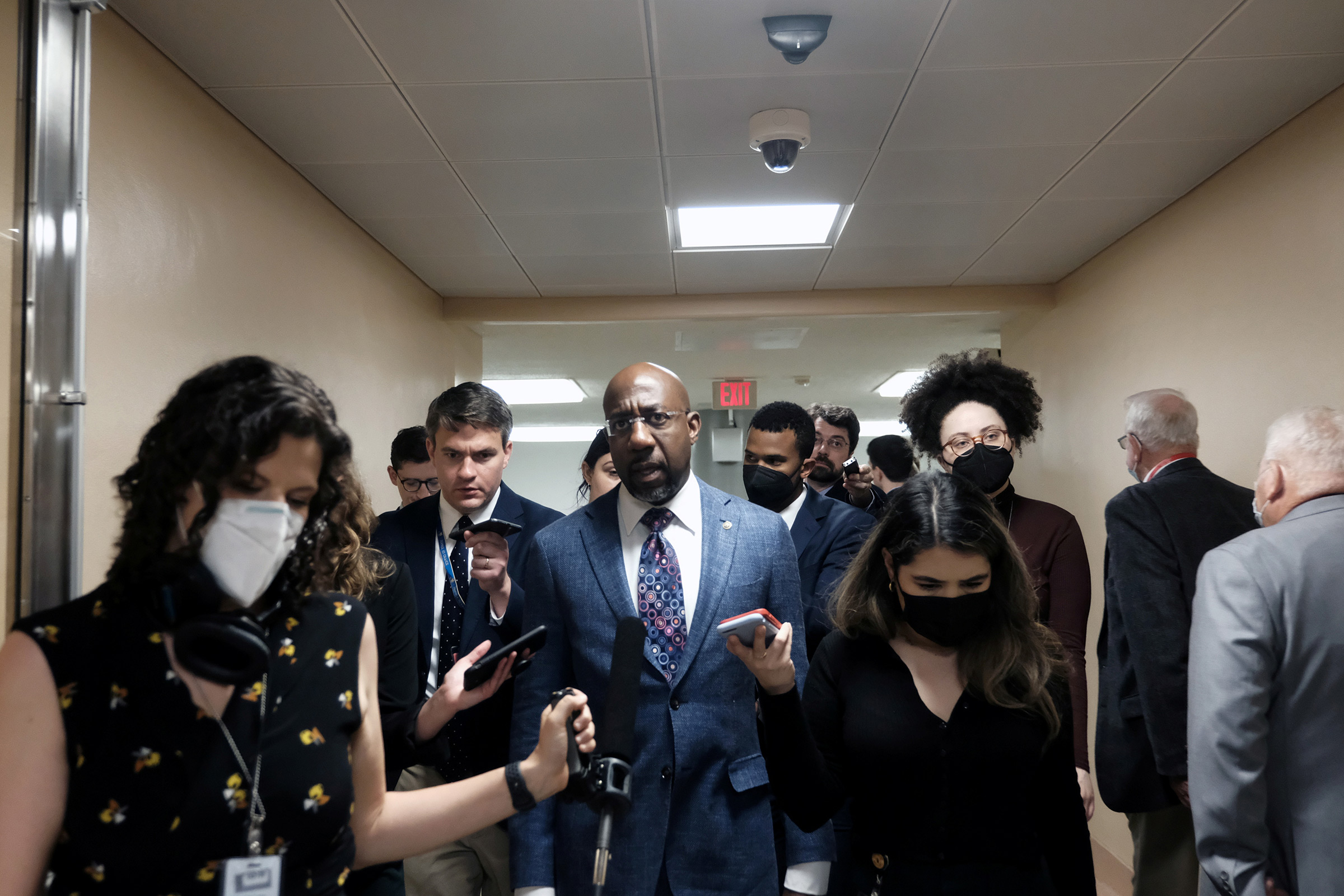
Andra Gillespie, a political scientist at Emory University, points out that this is not the first time a Senate race has featured a Black Democrat and a Black Republican; in fact, it will not be the only such contest on the ballot in November. This, she argues, “reflects the ideological diversity of Black America … There has always been a contingent of Black Republicans. And they are becoming more visible as officeholders and nominees.”
Nevertheless, Walker is an eyebrow–raising choice. The AP reports that an extensive review of public records reveals “accusations that Walker repeatedly threatened his ex-wife’s life, exaggerated claims of financial success, and alarmed business associates with unpredictable behavior.” New York Times columnist Charles Blow positions Walker’s nomination as “part of a callous racial calculus, one in which Trump is well-trained . .. To many in the GOP, his race blunts the idea that Republicans are appealing to racists.” In light of this, many regard Walker’s candidacy as a cynical effort by Republicans to shake the label of being the party of bigotry.
In Warnock’s view, this too is the legacy of King. “Because since King, people have to at least show some sense of being embarrassed about racism. And on the flip side of that, it became difficult … People push back so hard, when things are named as racism, even when they are obviously racist.”
Toni Morrison famously declared, “The very serious function of racism is distraction. It keeps you from doing your work.” Warnock seems determined to avoid this trap, remaining focused on the issues that matter to him. One of his projects is the fight to cap monthly insulin costs at $35. “People are out here rationing care,” he says. He is working with farmers to help them preserve their lifestyle and traditions. He wants us to think about the glorious moment when Ketanji Brown Jackson was confirmed to the Supreme Court. On this occasion, he was moved to write a note to his 5-year-old daughter: Judge Jackson “looks like you and has hair like yours.” These matters motivate the Senator.
However, it is the personalities of his state that have seized the imagination of the nation. Between Marjorie Taylor Greene’s conspiracies, Barry Loudermilk’s mysterious Capitol tours on the eve of the Jan. 6 insurrection, and now Herschel Walker’s wild ideas, the Peach State is emblematic of MAGA incorrigibility. Conversely, we are the home of Stacey Abrams, the now two-time Democratic candidate for governor, and of the late John Lewis, the civil rights icon who passed away in 2020. Georgia, once the cradle of the civil rights movement, is anew at the center of the struggle for justice in a divided country.
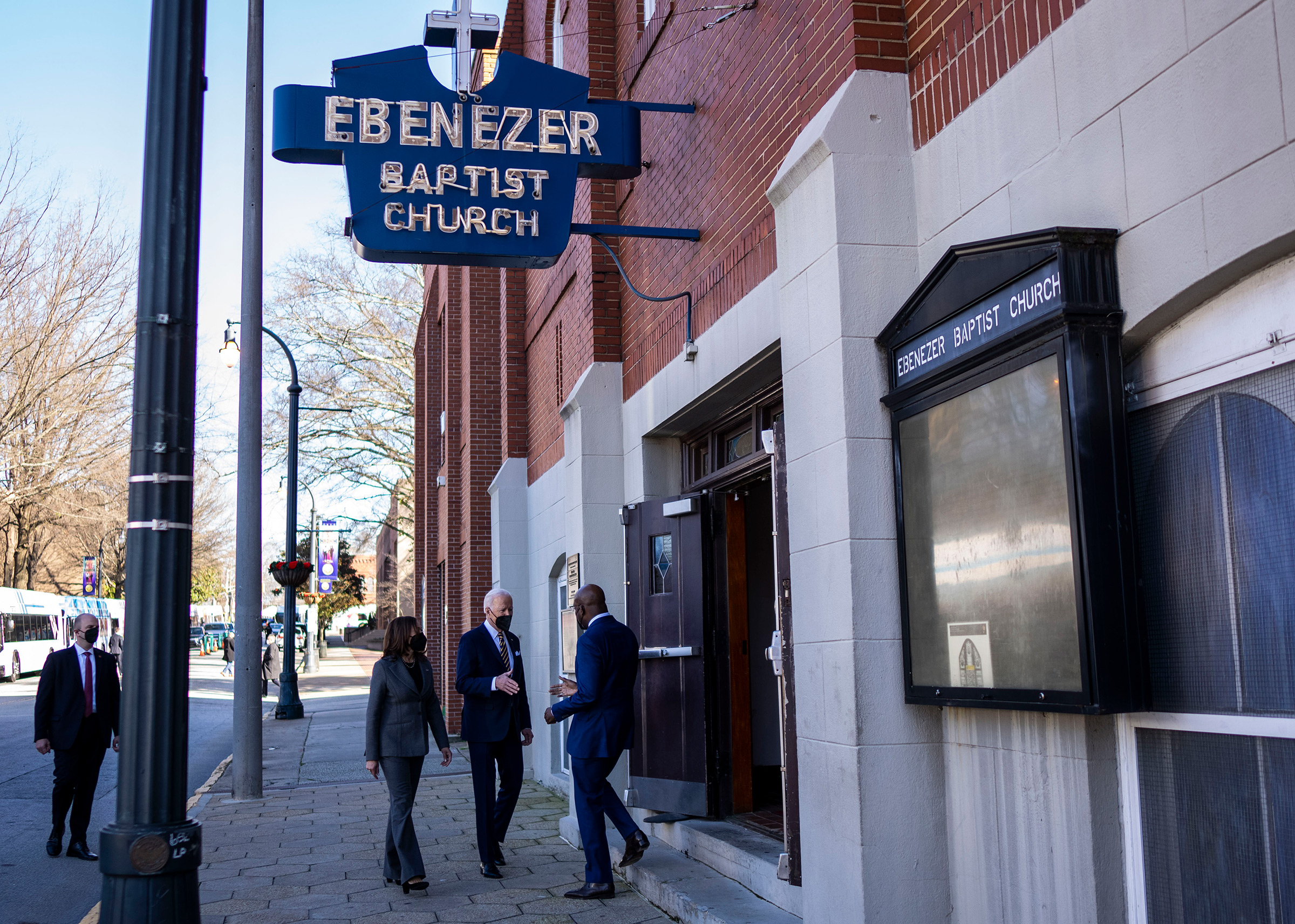
And yet again, the pastor of Ebenezer Baptist Church has raised his voice on the national stage. At Paschal’s restaurant in Atlanta, Warnock hesitates over the menu. I recommend the fried chicken, well known to have been favored by King and the movement crowd. Warnock, considering the baked chicken, points out that “King didn’t live to see 40. He never had to watch his diet.”
This leads us to a discussion about how Warnock’s own path diverges from that of his spiritual mentor. “I never saw myself as someone trying to do exactly what [King] did. He represents a tradition, and there are various others. But
I think King was rightfully suspicious of politics … He was rightfully concerned about what happens to your moral voice if you actually run. And it is something that I think about …In my heart of hearts, I am still a preacher.”
When he says he is “still a preacher,” he is not merely referring to his temperament. Warnock delivers sermons at -Ebenezer most Sunday mornings, and catches an early morning plane to D.C. on Mondays. On Mother’s Day, his address was titled “A Mother Trying to Make It,” in which he engaged the question of Roe v. Wade. He insisted that being anti-abortion is not the same as being pro-life. He discussed a range of issues that illustrated the breadth of the impact of women’s reproductive health and freedom. He preached about other issues that should fall under the heading of being “pro-life,” including criminal–justice reform, maternal mortality, and Medicaid reform. There are some who say these are policy issues, but Warnock believes they belong in the pulpit. “I never see [policy and morality] as different things. Never have, never will.”
With what is perhaps a rhetorical nod to King’s non-violence, Warnock does not engage his opponents with vitriol. When asked about Greene, he firmly, factually, and diplomatically points out that “racial and partisan gerrymandering will produce extremists.” His affect is a dignified stance, going high when they go low, à la Michelle Obama. His opponent Walker is constantly in the media for various gaffes, untruths, hypocritical statements, and misdeeds. Warnock does not take the bait. In one ad, he depicts himself as a poor athlete, but points out that this competition is not happening on the football field.
Will this approach be as effective against Walker as it was against Loeffler? The world is a different place than it was on Jan. 5, 2021. The Jan. 6 committee hearings are reminding us the difference that only one day can make in the future of a centuries–old democracy. The election of Warnock and Ossoff, and the attendant shift of power in the Senate, triggered a backlash tsunami of “election-integrity” laws unchecked because of the gutting of the Voting Rights Act. These laws, critics say, will disproportionately keep constituents of color, who are Warnock’s base, from voting.
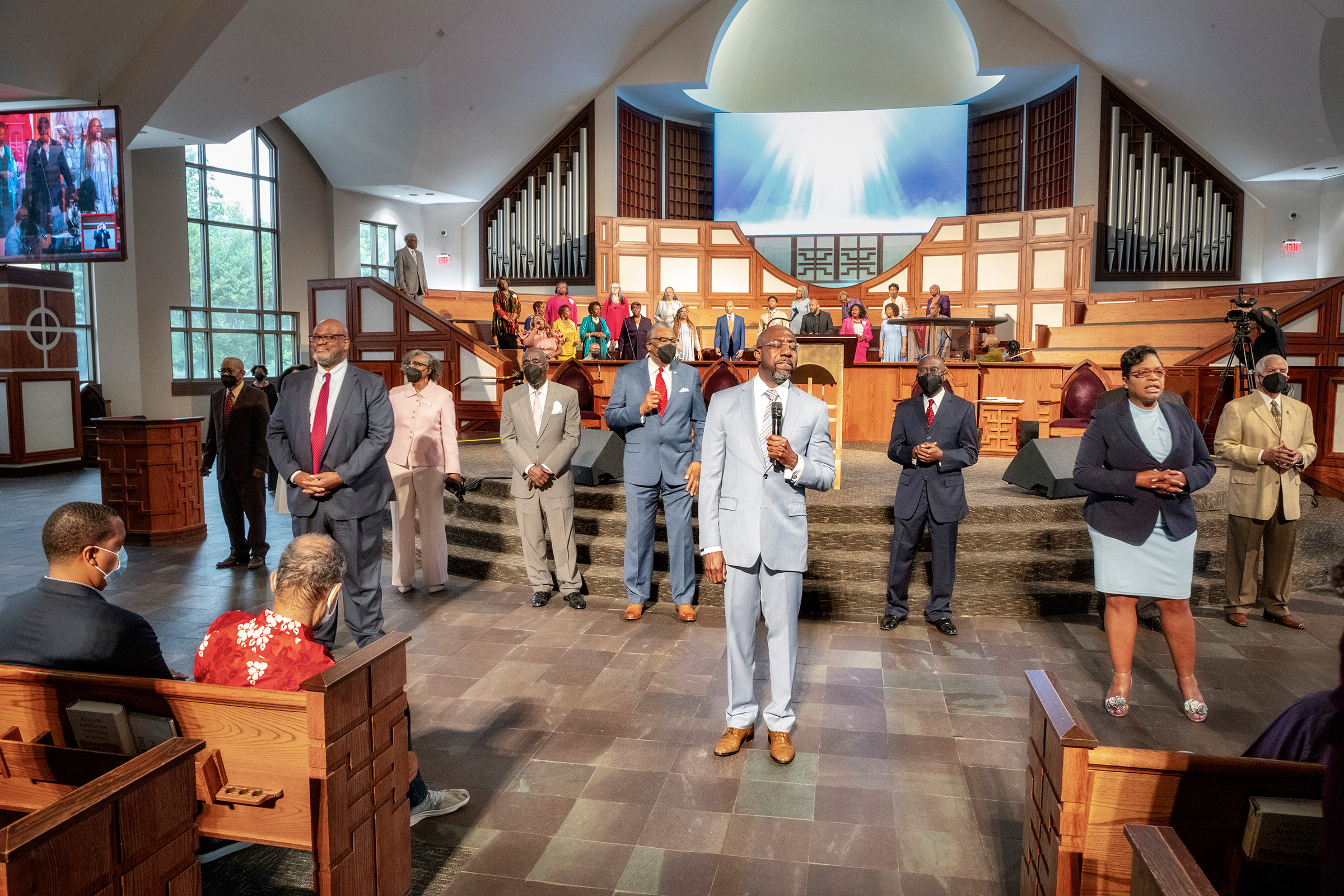
Further, as the Jan. 6 committee hearings have demonstrated, radical voices in government have in turn radicalized the citizenry. Warnock is concerned that because of gerrymandering, “These extreme personalities emerge … so they don’t reflect what it’s actually like. It’s like holding a magnifying glass.” When he says this, he means that the magnifying glass distorts and enlarges, but there is another way to read this metaphor. A magnifying glass, held in the sun at the right angle, can start a fire.
While the matter at hand is the November election, larger questions loom. Can the sparks that threaten the dry kindling of our democracy be extinguished at the ballot box? In an era of rage and political violence, can a reverend chart a path that gives him victory without fanning the flames?
It is now that his identities as Senator Warnock and Reverend Warnock overlap so tightly there is no way to know where one duty takes over for the other. “So maybe because I am a preacher and I theorize about the complex nature of human beings. Yes, they are inherently flawed, and yet there is glory. Democracy will expand, and there are moments where it contracts. But even contractions are necessary for birth. So I keep moving, and maybe it’s because I am a Baptist preacher who preaches every Sunday.”
More Must-Reads from TIME
- Cybersecurity Experts Are Sounding the Alarm on DOGE
- Meet the 2025 Women of the Year
- The Harsh Truth About Disability Inclusion
- Why Do More Young Adults Have Cancer?
- Colman Domingo Leads With Radical Love
- How to Get Better at Doing Things Alone
- Michelle Zauner Stares Down the Darkness
Contact us at letters@time.com
